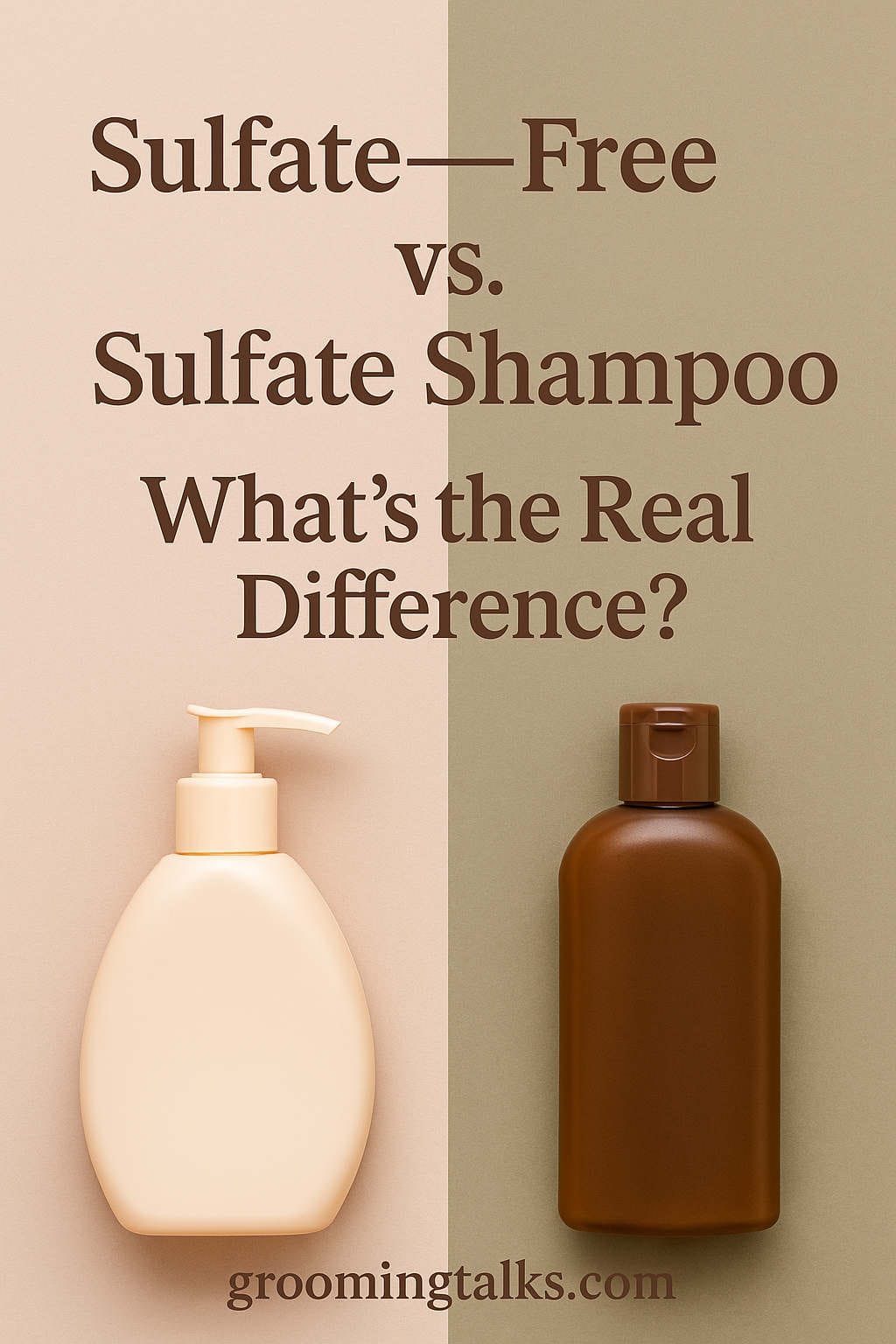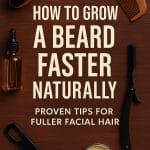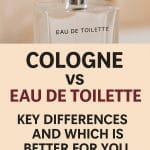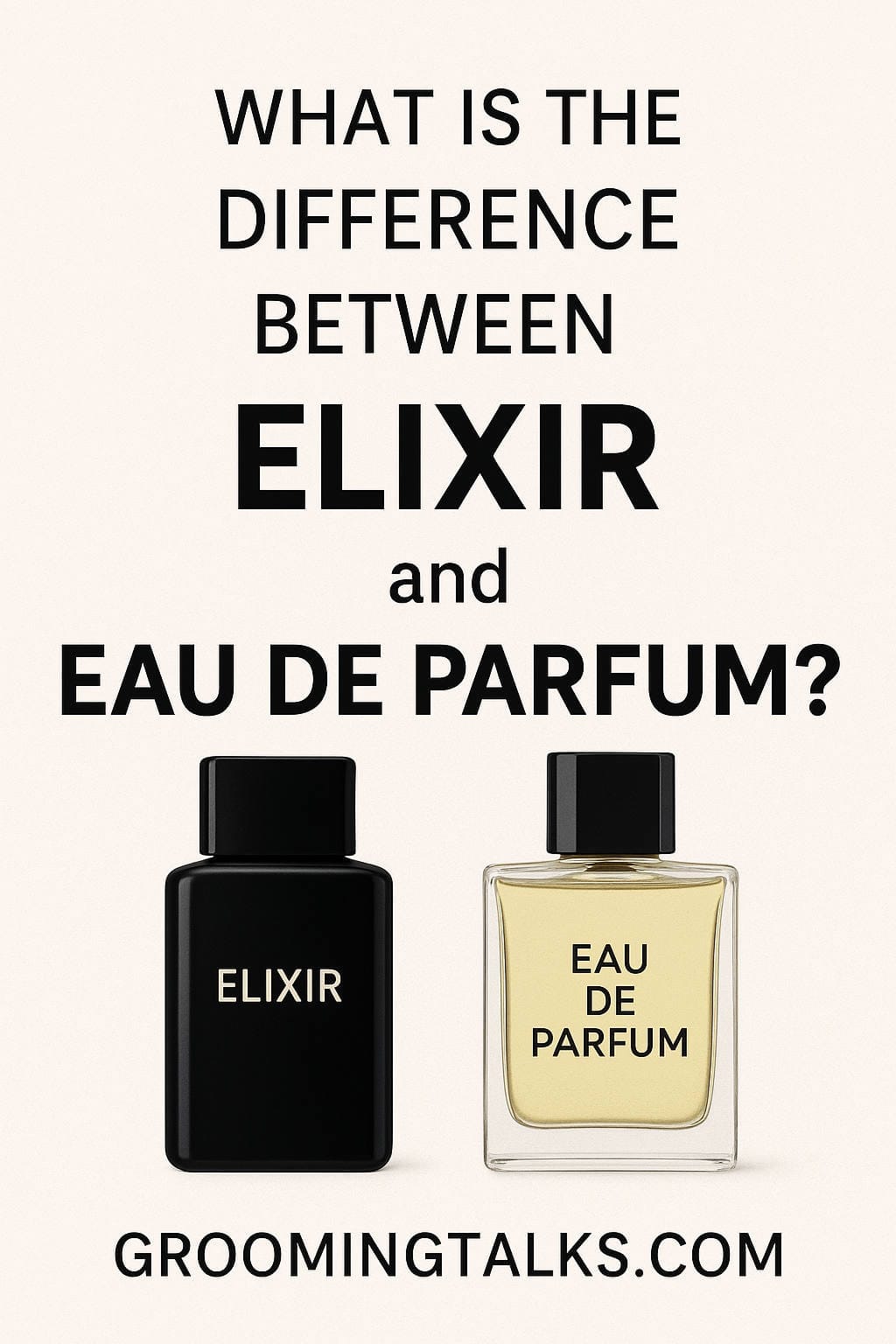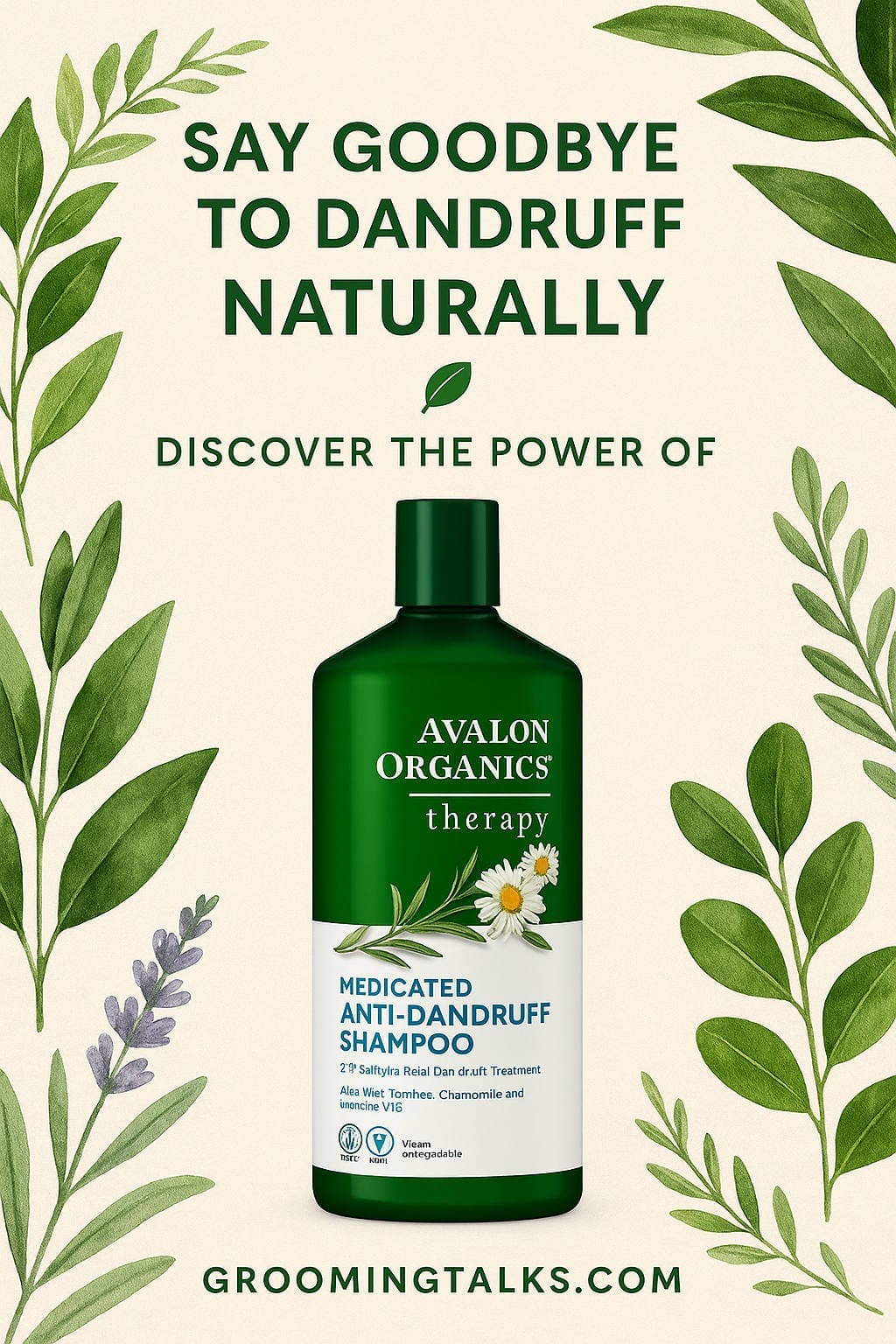Walk down the hair care aisle at any store today, and you’ll see it: “Sulfate-Free” plastered across countless shampoo bottles like a golden badge of honor. These labels often promise gentler formulas, better hydration, color protection, and healthier hair overall. But what exactly are sulfates? Are they really harmful—or just misunderstood? Is sulfate-free shampoo truly better, or is it just another beauty buzzword?
Let’s break this down in plain English. Whether you’re curious, skeptical, or ready to overhaul your hair care routine, this guide will help you understand the real difference between sulfate and sulfate-free shampoos—so you can make the best choice for your unique hair and scalp needs.
So, What Are Sulfates Anyway?
Sulfates are cleansing agents—specifically, surfactants—used in shampoos (and many soaps, body washes, and toothpastes). Their job is to create that satisfying lather and wash away dirt, oil, and product buildup. The most commonly used sulfates in shampoos include:
- Sodium Lauryl Sulfate (SLS)
- Sodium Laureth Sulfate (SLES)
These ingredients are incredibly effective at cleaning your scalp and hair. When water mixes with shampoo and sulfates get to work, they surround dirt and oils, break them up, and carry them away as you rinse.
That’s the science part. But the real question is: does “effective cleansing” equal “healthy hair”?
Why Do Sulfates Have a Bad Reputation?
There’s a reason sulfate-free shampoos have surged in popularity over the past decade: consumers began linking sulfates to dryness, irritation, and hair damage.
While early rumors claimed sulfates were “toxic” or even “carcinogenic,” those claims have been debunked by science. There’s no credible evidence that sulfates in shampoos cause cancer. Still, the concerns about their harshness hold merit for many people.
Here’s why:
- They can strip natural oils from your scalp and hair, leading to dryness and brittleness.
- Sensitive skin may react poorly, with itching, flaking, or inflammation.
- Color-treated hair fades faster when exposed to sulfates.
- Curly or textured hair often becomes frizzy because sulfates rough up the hair cuticle.
So, while they’re not “toxic,” sulfates can be overly aggressive for certain hair types and skin conditions.
What Does “Sulfate-Free” Mean?
A shampoo labeled “sulfate-free” simply avoids using harsh sulfates like SLS or SLES. Instead, these formulas rely on gentler cleansing agents, often derived from coconut, sugar, or other natural sources. You might see ingredients like:
- Cocamidopropyl betaine
- Decyl glucoside
- Sodium cocoyl isethionate
- Disodium laureth sulfosuccinate
These compounds still clean your hair but in a way that preserves your scalp’s natural oils and protects the hair shaft. You’ll also notice that sulfate-free shampoos usually don’t lather as much. That can feel strange at first, especially if you equate lots of bubbles with cleanliness. But less lather doesn’t mean less cleaning—it just means less harsh surfactant activity.
Sulfates: The Good, The Bad, and The In-Between
Let’s get honest. Sulfates aren’t the enemy—they’re just strong. And depending on your hair type and how you care for it, that can be a blessing or a problem.
The Upside of Sulfates
- Deep cleansing: They’re excellent at removing heavy oils, sweat, and product residue.
- Rich lather: Many people associate foam with cleanliness, and sulfates deliver.
- Affordable: Sulfate-based shampoos are typically less expensive.
- Effective for oily scalps: If you struggle with greasy roots, sulfates can cut through the oil fast.
The Downside of Sulfates
- Over-cleansing: Sulfates can strip away not only dirt and oil but your hair’s essential moisture and protective barrier.
- Color fading: They open up the hair cuticle, which allows dye molecules to slip out.
- Irritation risk: For people with sensitive skin, sulfates can trigger inflammation or dryness.
- Dryness and frizz: Particularly in curly, wavy, or chemically-treated hair, sulfates often leave hair dehydrated and prone to frizz.
What Makes Sulfate-Free Shampoo Different?
A sulfate-free shampoo is designed to cleanse without stripping your scalp’s natural moisture. It tends to be:
- Gentler on your skin and hair
- More hydrating
- Less foamy (which can be an adjustment)
- Ideal for delicate or processed hair types
Most sulfate-free shampoos also contain nourishing ingredients like aloe vera, argan oil, shea butter, or glycerin to support moisture balance and hair health. These formulas are often more pH-balanced and focused on scalp care as well.
Who Should Use Sulfate-Free Shampoo?
Not everyone needs to ditch sulfates, but for many people, switching to sulfate-free can make a dramatic difference in the look and feel of their hair.
1. People With Dry or Damaged Hair
If your hair feels brittle, looks dull, or tangles easily, sulfates may be contributing to that damage. Sulfate-free formulas can help preserve moisture and reduce further breakage.
2. Curly, Coily, or Wavy Hair Types
Textured hair is naturally more fragile and prone to dryness. Sulfates can cause curls to frizz and lose definition. A sulfate-free shampoo helps keep curls soft, moisturized, and bouncy.
3. Color-Treated or Chemically Processed Hair
Hair dyes, keratin treatments, and perms leave hair more porous and vulnerable. Sulfates accelerate color fading and weaken the structure. Sulfate-free shampoos help maintain both vibrancy and integrity.
4. Sensitive or Irritated Scalps
If you experience itching, burning, or flaking after washing your hair, a gentler, sulfate-free formula might be what your scalp needs.
5. People Washing Their Hair Frequently
If you’re washing your hair daily—because of workouts, humidity, or preference—sulfate-free shampoo minimizes the risk of over-drying your scalp and strands.
Who Might Still Benefit from Sulfates?
Let’s not forget that not all sulfates are evil. Some people can still benefit from a sulfate-based shampoo.
1. People With Excessively Oily Hair
If your scalp produces a lot of oil, or you use heavy styling products, an occasional wash with a sulfate-based shampoo can provide a deep clean.
2. Swimmers or Gym-Goers
Sweat and chlorine build-up can be tough to remove without a little muscle—sulfates can help with that.
3. Clarifying Once in a While
Even if you use sulfate-free shampoo regularly, using a sulfate-based clarifying shampoo once every couple of weeks can help remove stubborn residue.
The Transition Period: What to Expect
Switching from a sulfate shampoo to a sulfate-free one isn’t always smooth sailing. It can take time for your scalp to rebalance and adjust.
Common experiences during the transition:
- Hair feels greasier or heavier at first
- You miss the rich, bubbly lather
- You feel like it’s “not working”
But don’t give up too quickly. Your scalp might have been overcompensating for oil loss due to sulfates by producing more oil. Once you stop stripping it, it will gradually produce less oil, and your hair will begin to feel balanced again. Give it 2–4 weeks to adjust.
To ease the transition:
- Clarify first with a sulfate-based shampoo one last time to remove buildup.
- Wash twice if needed with your sulfate-free shampoo to lift oil and distribute it evenly.
- Use warm (not hot) water to help open the cuticle gently and cleanse more effectively.
Lather Doesn’t Equal Clean
One of the biggest myths is that more foam means cleaner hair. That satisfying lather is a sensory experience, not a guarantee of better results. Many sulfate-free shampoos clean just as well—they just do it without the bubble show. Don’t be fooled by a lack of suds.
Environmental and Ethical Benefits of Sulfate-Free Products
For people who care about sustainability and animal welfare, sulfate-free shampoos often come with added bonuses.
- Biodegradable formulas: Gentler cleansers break down more easily and are less toxic to aquatic life.
- Cruelty-free testing: Many sulfate-free brands emphasize ethical production.
- Vegan-friendly ingredients: You’ll find many sulfate-free options that are free from animal byproducts.
- Reduced packaging waste: Eco-conscious brands often offer refill stations or minimal packaging.
Just remember—“sulfate-free” doesn’t automatically mean ethical or sustainable. Always check the brand’s values and certifications.
Are Sulfate-Free Shampoos More Expensive?
In many cases, yes. Sulfate-free shampoos can be pricier because they use higher-quality, plant-derived ingredients and fewer synthetic chemicals. But that’s not a hard rule.
Brands like SheaMoisture, Love Beauty and Planet, Maui Moisture, OGX, and Aveeno offer budget-friendly sulfate-free options that perform well.
And here’s something to consider: sulfate-free shampoos may reduce your need for other products (like deep conditioners, masks, or frizz treatments), which can balance out the cost.
Myth-Busting: Clearing the Air on Sulfates
❌ Myth 1: “Sulfates cause cancer.”
✅ Truth: There is no scientific evidence linking SLS or SLES in shampoos to cancer. This myth came from confusion around an unrelated industrial chemical.
❌ Myth 2: “Sulfate-free shampoos don’t clean properly.”
✅ Truth: They clean thoroughly but gently. If you’re using heavy products, you might need two washes—but they do the job.
❌ Myth 3: “All sulfates are equally bad.”
✅ Truth: Some sulfates (like SLES) are milder than others (like SLS). And some hair types tolerate them just fine in moderation.
❌ Myth 4: “Foam equals cleanliness.”
✅ Truth: Lather is created by surfactants, not by how clean your hair is. Some gentle cleansers clean well with minimal foam.
Final Thoughts: Which Shampoo Is Right for You?
There’s no one-size-fits-all answer—your best shampoo depends on your hair’s needs, your lifestyle, and even your ethics.
Choose Sulfate-Free Shampoo If:
- Your hair is dry, curly, or chemically treated
- You want to preserve color or moisture
- You have a sensitive scalp
- You’re aiming for a cleaner, greener hair care routine
Choose Sulfate Shampoo If:
- You have very oily hair or scalp
- You use lots of styling products or dry shampoo
- You need an occasional clarifying clean
- Your hair tolerates stronger cleansers without damage
And remember, you don’t have to commit 100% either way. Many people rotate between sulfate-free for regular use and a sulfate-based clarifier when needed.
The Bottom Line
Sulfates aren’t evil—they’re just strong. For some hair types, they’re too strong. For others, they’re just fine. The real power lies in knowing what your hair needs and responding with care.
So don’t just follow a label. Listen to your hair. If it feels dry, frizzy, or faded, consider going sulfate-free. If it feels weighed down or oily, a gentle sulfate wash might help. The best shampoo isn’t just the one with the best marketing—it’s the one that makes your hair feel its healthiest.
Have you tried switching to sulfate-free shampoo? What changed for you? Share your experience in the comments—we’d love to hear what’s worked for your hair!
You might also like,
Top 5 Sulfate-Free Shampoos for Sensitive Scalps (Derm-Approved)
